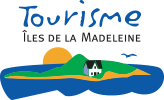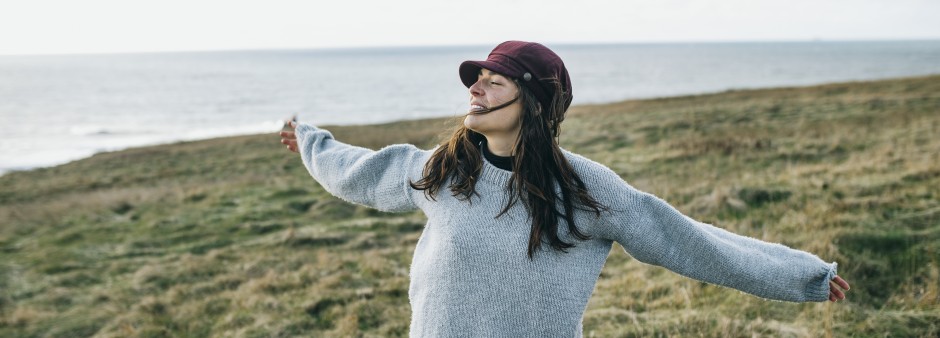


Visiting the Îles de la Madeleine leaves no one indifferent. One of the first interactions most Islanders have with people on the mainland echoes this sentiment. There's excitement in the air once we've said where we're from—more often than not, the interlocutor starts wandering, longing, telling stories of how their life was touched by Les Îles. I've met strangers who told me having visited ten, twenty, fifty years ago...
Those who haven't been yet talk eagerly about wanting to. One day, they say, wishing upon a star or hopefully eyeing their partner, soon, maybe next year, maybe the one after, we'll see. Having grown up on Les Îles myself, and having moved away, these encounters always rattle something in me. I'm now of those who keep an eye on the horizon, telling myself it won't be long before I'm back. Soon, soon, you'll see.
And it's more than just a view. There's a flavour to Les Îles, something hard to emulate elsewhere. Of course, being on an island is an important part of that feeling: it impacts everyday life, redefines what's possible, shapes new challenges, our culture, how we socialize. But more than being surrounded by endless sea, I think there's a feeling that is distinctively Les Îles: something both sad and happy, lying somewhere in what the poet Marie Uguay called "the sad mystery of the last birds being reclaimed by the tide (1)." This connection with nature, crystallized in the relationship between a fishing people and the sea and its moods, has a way of humbling the Madelinots. Islanders sure can put on a show, but never a pretentious one.
Faced with the restlessness of modern life, we encounter a form of timelessness in Les Îles. Brother Marie-Victorin, who visited in 1920, was already noting how the Madelinots were "remarkably independent of the clocks":
" In these days of daylight saving time, there is complete anarchy among the islanders. Some have kept, without much conviction, the old time; others have adopted the new time; a third group even opted, whimsically, for a half-hour compromise, running with the hare and hunting with the hounds. But really, no one cares for one or the other. And are they not in the right, all of them? [...] The sun, the wind and the tide regulate the lives of the Madelinots, as coordinates would. For people from the mainland, accustomed to a complicated existence and the methodical crumbling of time, it makes for tiresome days of slowing down (2)."
Clocks certainly have greater power over the everyday life of the Madelinots than they once did, but some of this independence still seems to endure. Recently back from Les Îles, I can confirm that the three weeks I spent over there were coloured by that timelessness. Out of all the activities I had planned for my stay, most of my time was spent staring at the horizon from the quiet comfort of the porch.
(1) Marie Uguay, Journal, text established, annotated and presented by Stéphan Kovacs, Montréal, Boréal, 2005, p. 98.
(2) Brother Marie-Victorin, Chez les Madelinots, Montréal, Frères des écoles chrétiennes, 1920, p. 12-13. Available online at https://archive.org/details/chezlesmadelinot00mari/